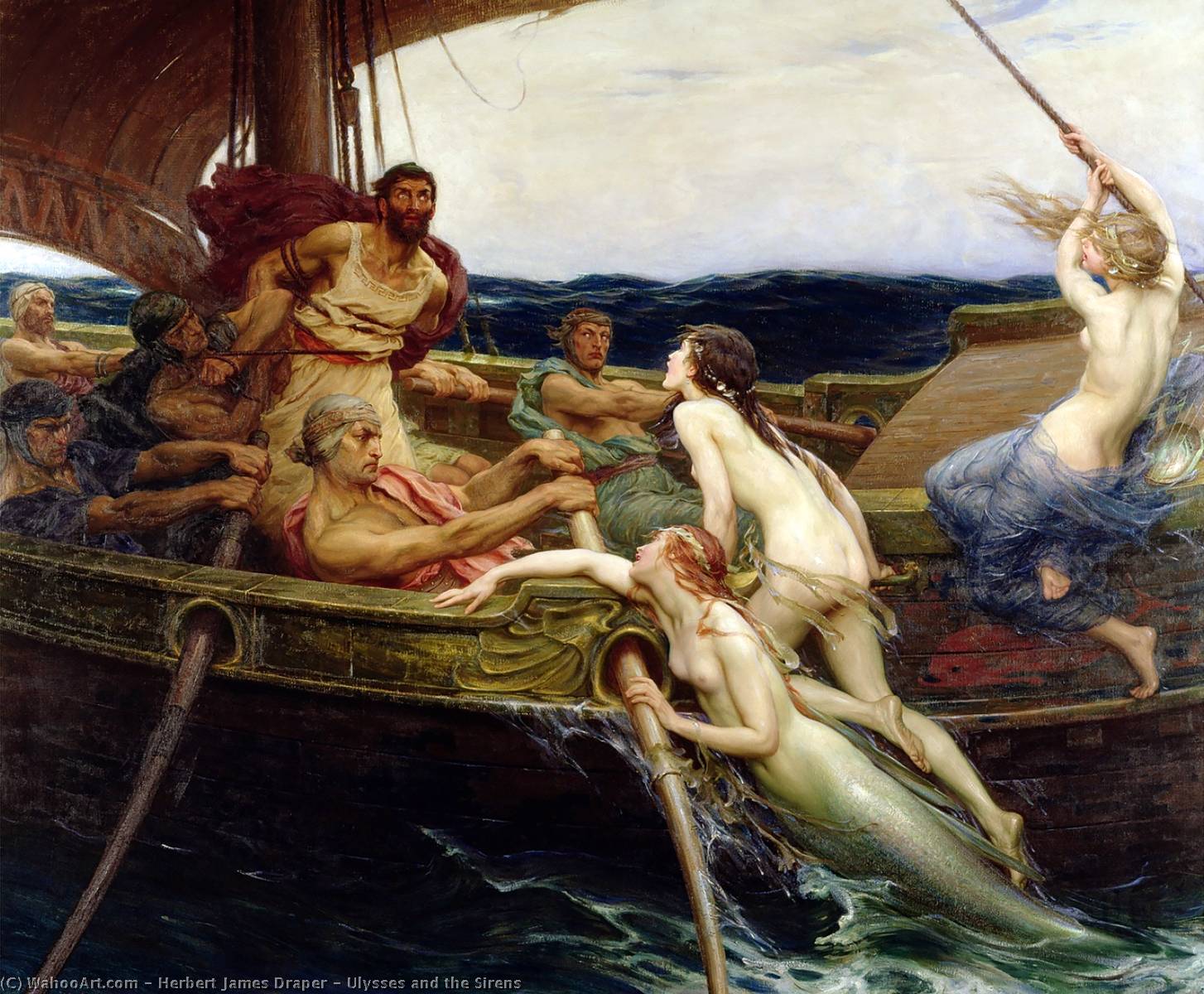Females of land and sea with enchanting voices.
Siren Lore
Author's Note: This entry contains a spoiler for the movie 'The Lighthouse' by Robert Eggers.
 'Ulysses and the Sirens' by Herbert James Draper
'Ulysses and the Sirens' by Herbert James Draper
In the beginning, there were only voices. Sweetly they floated out from their island promising knowledge of all things. So compelling that any man who heard them would go to them willingly, forgetting his greater mission. Forgetting himself.
This way, oh turn your bows,\ Achaea’s glory,\ As all the world allows—\ Moor and be merry.
Sweet coupled airs we sing.\ No lonely seafarer\ Holds clear of entering\ Our green mirror.
Pleased by each purling note\ Like honey twining\ From her throat and my throat,\ Who lies a-pining?
Sea rovers here take joy\ Voyaging onward,\ As from our song of Troy\ Graybeard and rower-boy\ Goeth more learned.
All feats on that great field\ In the long warfare,\ Dark days the bright gods willed,\ Wounds you bore there,
Argos’ old soldiery\ On Troy beach teeming,\ Charmed out of time we see.\ No life on earth can be\ Hid from our dreaming
We have this record because the great hero Odysseus took council from the goddess Circe. Wishing to hear the voices of the sirens, he plugged the ears of his crew with wax and lashed himself to the mast of his ship. Bound tightly he was unable to approach when the song summoned him. He survived the encounter and returned with his story of the sirens.
Why must man fear knowledge? Where lies the poison in the sirens' sweet honey? Circe warns of the piles of mouldering bones surrounding the sirens' favored island. It would be easy to interpret the danger as mere illusion: The sirens lure the sailors with false promises and then feast upon them with fang and claw. I believe the truth is much more horrifying.
When a man confronts the sirens, they deliver exactly what was promised: knowledge of all things. In the face of absolute understanding, his mind and soul disintegrate in terrified screams. The mythologist Robert Eggers presents the horror in his movie The Lighthouse. After disturbing, sexual encounters with a mermaid, the doomed mariner Thomas finally confronts the great light at the top of the lighthouse. Faced with such knowing, such cosmic horror, he loses his mind and ends up a corpse on the rocks.
The voice is the truth of this creature. Many other aspects of the siren have evolved throughout history and remain contested to this day. Yet the power of the voice remains constant. The little mermaid of Disney fame, whose alluring voice drives the plot forward, is a direct descendent of the sirens in Homer. I believe that mermaid and siren are indistinguishable. These are simply two names for the same creature that represent different favoured interpretations.
Notice that Homer only describes the voice. We have no physical description from the adventure of Odysseus, other than the knowledge that they are female. In ancient Greece, they were described by Ovid as birds with golden plumage and the face of a virgin. Others described them as hybrids with the top half of a woman and the bottom half of a sea bird. In the Physiologus they were half woman, half goose. In the Middle Ages, it was common to depict them as half fish, half woman – a depiction that remains popular today. The half fish, half woman motif is very common in heraldry and other ornamentation from that period. Some illustrations even combine the features so that they appear as mermaids with wings.
Their nature is unclear. They have been called nymphs, monsters, and demons. Modern sirens, like Ariel, are benevolent and wish to involve themselves in human affairs, while others remain indifferent towards us. From Borges:
Sometime in the sixth century, a Siren was captured in the north of Wales and baptized, and even listed as a saint in certain ancient calendars, under the name Murgen. Another came through a break in a dike in 1403, and lived in Haarlem until her death. No one could understand her, but she taught people to spin and she worshipped the cross, as though instinctively. A sixteenth-century chronicle reasoned that she was not a fish, for she knew how to spin, nor yet was she a woman, for she could live in water.
I advise caution. We have the ill-fated Thomas as a warning and the story of Odysseus as a strategy for avoiding them. There is one other story involving the supernaturally gifted singer Orpheus. He sang so sweetly that it rivalled the sirens, who immediately leapt into the sea and transformed into the rocks below. It is assumed that they must perish whenever a man does not succumb to their voice.
Written by Giles Ravensong.
